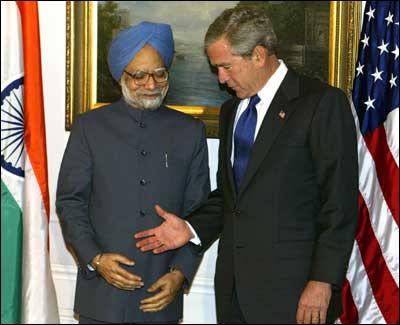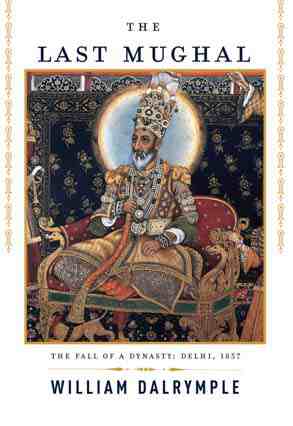
The commentrator on the telly said, “Ye naujawan kaafi dinon se bhartiye cricket team ke darwaaze pe dastak de raha tha. Aaj aakhirkaar inko mauqa mil hi gaya.” [Trans: This young man has been knocking on the Indian team door for quite some time. Finally he has got the opportunity!] It was December 31, 1984. The English side was touring India.
The young man was a tall, lanky, and a shy 21 years old who worked as a clerk at SBI in Hyderabad. The Englishmen had never heard of him and so did I. The young batsman showed tremendous concentration and batting skills. The experts were reminded of the wristy Gundappa Viswanath! He went on to score a hundred in his very first match, which was a remarkable achievement by any standards. More was to follow.
By the time the second test started the Englishmen knew he was the danger man. So much that Mike Gatting later quoted as saying, “Whenever that black thing (referring to his taweez) hung out we knew we were in trouble.” Even the gods favoured the wristy genius on the ground. He scored a hundred again! And this time the whole of India and the cricketing world noticed. Mohd Azharuddin had arrived!
When Azhar scored the third consecutive test hundred in his debut series, India had found a new hero! For a nation still recovering from the assassination of its much loved PM Mrs Gandhi, it was time to rejoice. For Azhar it was a mixed feeling, his grandpa Mr. Vajehuddin, who raised him died days before he could score his first century for India.
"Those who saw this supreme batting artist at his peak will never forget him - sinewy wrists transforming a slender piece of willow into a magician's wand. Azhar's leg-side play was reminiscent of Zaheer Abbas and Greg Chappell - a Michelangelo in the midst of housepainters. In later years, he expanded his off-side repertoire, and conjured some of the finest innings played in the modern era - his 121 at Lord's in 1990 was one for the gods. His technique was suspect against the short stuff, a deficiency he sought to overcome through instinctive strokeplay, sometimes with cavalier disregard for the team situation. As captain, Azhar enjoyed tremendous success on made-to-order home pitches, while right to the end of his career he was peerless in the field, whether prowling the covers or pouching catches at slip. He announced his arrival, against England in 1984-85, with three hundreds in his first three Tests, a feat that has never been matched, while his last Test innings also bore him a hundred. But then allegations of match-fixing provided an emphatic full stop. That he finished his career with 99 Tests is perhaps appropriate for one who came within a whisker of batting immortality - only to throw it all away at close of play."
---Azhar's profile by Dileep Premachandran at Cricinfo
Gradually Azhar became a darling of the media. His life was all out there. A practicing Muslim who never misses his prayers (used to carry his prayer mat wherever he go), sharing sayings of the holy Qurán with his fellow players, humble to the core, a person you would love to have as a friend, Azharuddin had everything you couldMohd Azharuddin ask for. The icing on the cake was his promotion to the post of Branch Manager by the bank as a reward for his tremendous achievement.
If Kapil Dev brought me to the exciting world of Cricket, Azhar made me passionate about it. It would be wrong not to admit that there was an element of 'religious' favour with Azhar. He was the Muslim I wanted to emulate. And so did many others I knew.
His early marriage to the lovely Naureen, and the start of a happy married life, once again highlighted his commitment to whatever he did. Azhar was never involved in any controversy be it cricket or his personal life. No link ups, nothing! On the cricket pitch, if he thought he was out he used to walk off the field even before the umpire raised his finger. Even a bad umpiring decision never resulted in any sign of disappointment from him. He never had anything bad to say about others. In a TV programme some time back one of his friend talked about his acts of charity. Every time he came to the ground in Hyderabad for practice with the team he would tell the most promising cricketer to pick any equipment from his kit. Azharuddin personified the ‘gentlemen’ of cricket.
"Scoring runs is not in my hands. If He desires me to do well, nothing can prevent me from doing so. And if He has decided it is not my time, there is nothing I can do about it. All I have to do is try my best."
---Azhar, a biography by Harsha Bhogle
The crowning glory came in 1990 when he was appointed the captain of the Indian Cricket Team. The selectors thought he had the right image and the ability to lead the team during a difficult period. In the early nineties when Azhar topped the India Today poll of the popular Indians you look up to as idols, leaving people like Rajiv Gandhi to a distant second spot, it was the pinnacle of his popularity.
Azharuddin Sangeeta BijlaniSadly, this was also the time when the earthly Azharuddin shifted his focus beyond the cricketing field. The man who earned a paltry Rs 800 in 1981 was reaping millions through his exploits on the ground. He did an ad shoot with Sangeeta Bijlani and things changed! From reading only cricket and health related magazines, he showed a new interest in film glossies. Azhar started frequenting Bombay. For somebody who went to bed early, he was spotted at parties which went late into the night. The last nail in the coffin was his divorcing Naureen to marry Sangeeta Bijlani. The same Azharuddin who could play the English even half asleep faltered against them in the subsequent England tour amidst all these personal upheavals.
His faith too was shaken – the man who was so particular about his prayers started missing even his Friday prayers. He became arrogant towards the press and greedy, things which were never associated with him. The attitude was reflected in his approach towards the game. His displeasure at given out in a one day game at Bombay (I think it was the Hero Cup) created a mini riot in the stadium. His weird ways of getting out shook even die-hard fans like me. The 74 balls hundred at his favourite Eden Gardens was full of anger, Azhar didn’t even acknowledge the standing ovation the crowd gave him. Surely this was not the Azhar people knew.
"It's no use asking an Englishman to bat like Mohammad Azharuddin. For, it would be like expecting a greyhound to win the London Derby!"
---John Woodcock, cricket writer
So when the matchfixing scandal broke out, the volcano finally erupted. BCCI banned him for life, media massacred his image, Income Tax guys went after him, his fans got disillusioned, and his close friends parted ways. Azhar said once, "Trials and tribulations are God's way of testing our faith." But, this was a far difficult test. HeAzharuddin Match Fixing started living the life of a recluse. The clock turned back to 1981 - he became a nobody.
Can Azhar bounce back for one last time as he always did during his playing days? Can he prove his innocence? Perhaps it’s too late! The damage has been done. The magical figure of a 100 tests will always elude him.
For me, the end of Azhar’s era was the end of my passion for cricket. I was shattered and appalled like million others who prayed for his return every time he was dropped. Whatever maybe the circumstances, his name figured in the controversy. He was perhaps singled out, but not because he was a Muslim as he claimed.
The life of Mohd Azharuddin is nothing short of a Greek tragedy. It would be fair to remember him as a genius with the bat and a fielder par excellence.
 THE moment you think of missile, and if you are an Indian, chances are that almost always the figure of Abdul Kalam conjures up in the mind. Such is the impact of Dr Kalam on the development of missile technology in India.
THE moment you think of missile, and if you are an Indian, chances are that almost always the figure of Abdul Kalam conjures up in the mind. Such is the impact of Dr Kalam on the development of missile technology in India.

 The Last Mughal by William Dalrymple has to be one of the most engaging and engrossing historical account of the great Indian mutiny of 1857. The book sensitively handles the issue with a balance approach in terms of the references.
The Last Mughal by William Dalrymple has to be one of the most engaging and engrossing historical account of the great Indian mutiny of 1857. The book sensitively handles the issue with a balance approach in terms of the references. 
